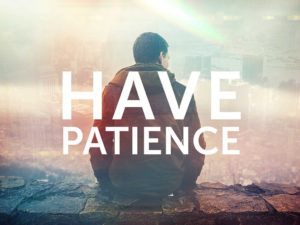Get Motivated
 Have you ever had one of those days where you knew there were things you should be accomplishing, but you would rather just curl up with a good book, watch some TV, head to the golf course or pour yourself into your favorite way to relax? Sometimes even when the task or need is clear, it can be difficult for us to get motivated. How do we get motivated? We may think in terms of rewards or consequences. We may consider the satisfaction of a job well done. Maybe others push us toward the goal. Motivation helps move us where we need to go.
Have you ever had one of those days where you knew there were things you should be accomplishing, but you would rather just curl up with a good book, watch some TV, head to the golf course or pour yourself into your favorite way to relax? Sometimes even when the task or need is clear, it can be difficult for us to get motivated. How do we get motivated? We may think in terms of rewards or consequences. We may consider the satisfaction of a job well done. Maybe others push us toward the goal. Motivation helps move us where we need to go.- No other options – Following Christ is the only path for a Christian to take. Any other option is inadequate. (John 6)
- Fear – We learn that it is important to fear God, and we also recognize that we should fear the entanglements and results of sin. (2 Corinthians 5:10-11)
- Love and gratitude – The love we received from God and people encourages us to reciprocate that same love towards them. (1 John 4:19, John 15:9-10)
- Rewards – Faithful living enhances this life, and we know there is an even better life to come. (Romans 8:1)
- Our identity in Christ – As being a Christ-follower becomes who we are, it becomes second nature to be more like Him. (Romans 6:1-4)
- Purpose and hope – As Russell talked about in his devotional Wednesday night, we have a hope that is not simply wishing for the best. Our hope trusts that God has plans for us and that He is faithful. (Ephesians 1:18)
- Longing for God – God is the most important thing in our lives. That fact motivates us to please Him and live for Him. (Psalm 42:1-2)
The Mission Before Us
 During Leon’s Wednesday night class (which you’re missing out on if you haven’t been here), I was struck by the change in the word used to describe the growth of the church from “added” in Acts 2 to “multiplied” in Acts 6. I believe the difference is who is telling the story. In Acts 2, people respond to Peter’s sermon. By Acts 6, the apostles share the message with others who continue sharing the message. Multiplication. This article from Keith Harris, Preaching Minister at the WindSong Church of Christ in Little Rock, reminds us of our role in that mission.
During Leon’s Wednesday night class (which you’re missing out on if you haven’t been here), I was struck by the change in the word used to describe the growth of the church from “added” in Acts 2 to “multiplied” in Acts 6. I believe the difference is who is telling the story. In Acts 2, people respond to Peter’s sermon. By Acts 6, the apostles share the message with others who continue sharing the message. Multiplication. This article from Keith Harris, Preaching Minister at the WindSong Church of Christ in Little Rock, reminds us of our role in that mission.There are some statements that seem to come to mind in certain situations; phrases that were fueled by extraordinary moments. I think of the words of Neil Armstrong as he floated gracefully to the surface of the moon from the ladder of the lunar module, “That’s one small step for man, one giant leap for mankind.” Or Richard Nixon’s, “I’m not a criminal!” Or what about those great moments in sports? There’s the famous Verne Lundquist commentary as Jack Nicklaus holed putt after putt in the 1986 Masters at Augusta, “Yes sir!” Or Verne’s dramatic commentary as Tiger holed a chip shot on the 16th at Augusta National, “Oh wow! In your life have seen anything like that?!” And there’s always Mohammad Ali, “I’m the greatest!” Or, “I’m pretty! I’m a bad man!” Without a doubt, statements that are made can become household phrases…depending on the peculiarity of the situation.Jesus offered many words that would challenge those who heard them. We know this full well. They challenge us today.
Have Patience
 As Jesus enters the synagogue in Mark 3, we learn that some “were looking for a reason to accuse Jesus.” This is one of the many times that I appreciate the patience of Jesus. Patience is one fruit of the Spirit that I consider to be a work in progress in my life. Jesus exemplifies it daily in the gospels. He walks into a situation where people are watching His every move and waiting for His first misstep. Still He continues to teach the lesson He wants them to learn through His actions. It’s a little more difficult for us to do things without being changed by being under the microscope.
As Jesus enters the synagogue in Mark 3, we learn that some “were looking for a reason to accuse Jesus.” This is one of the many times that I appreciate the patience of Jesus. Patience is one fruit of the Spirit that I consider to be a work in progress in my life. Jesus exemplifies it daily in the gospels. He walks into a situation where people are watching His every move and waiting for His first misstep. Still He continues to teach the lesson He wants them to learn through His actions. It’s a little more difficult for us to do things without being changed by being under the microscope.Becoming a Disciple
 Discipleship was not a new concept started in the ministry of Jesus. Rabbis and even other cultures had disciples long before Jesus chose the twelve. Still, there was something different about the way Jesus approached discipleship. In his book, The Complete Book of Discipleship, Bill Hull writes about four ways that Jesus’ way of doing discipleship was unique.
Discipleship was not a new concept started in the ministry of Jesus. Rabbis and even other cultures had disciples long before Jesus chose the twelve. Still, there was something different about the way Jesus approached discipleship. In his book, The Complete Book of Discipleship, Bill Hull writes about four ways that Jesus’ way of doing discipleship was unique.To Love and Obey
 As is sometimes the case, our Sunday morning series and Wednesday night auditorium class crossed paths recently with a topic that is found throughout scripture: love. We talked about love as a fruit of the spirit two weeks ago on Sunday morning, and 1 John has come back to the topic multiple times in our Wednesday night study. This week love for God and obedience to Him are connected in 1 John 5.
As is sometimes the case, our Sunday morning series and Wednesday night auditorium class crossed paths recently with a topic that is found throughout scripture: love. We talked about love as a fruit of the spirit two weeks ago on Sunday morning, and 1 John has come back to the topic multiple times in our Wednesday night study. This week love for God and obedience to Him are connected in 1 John 5.Lemons
 We’ve probably all heard the cliché before, “When life gives you lemons, make lemonade.” It’s a reminder to make the best of a bad situation. Some of us are skilled at it, but it still remains elusive to a lot of us. Instead we are dragged down by the bad, or we just sit and wait for it to get worse.
We’ve probably all heard the cliché before, “When life gives you lemons, make lemonade.” It’s a reminder to make the best of a bad situation. Some of us are skilled at it, but it still remains elusive to a lot of us. Instead we are dragged down by the bad, or we just sit and wait for it to get worse.Fellowship: Parts 3 and 4
 A few weeks ago, I shared the first in a series of four articles devoted to unpacking the scriptural example of small groups (like our fellowship groups). This is the combined third and fourth article in that series by Dr. Dan Williams, a long time minister and expert on small group ministries in the churches of Christ. – Brian
A few weeks ago, I shared the first in a series of four articles devoted to unpacking the scriptural example of small groups (like our fellowship groups). This is the combined third and fourth article in that series by Dr. Dan Williams, a long time minister and expert on small group ministries in the churches of Christ. – BrianFellowship: Part 2
 Two weeks ago, I shared the first in a series of four articles devoted to unpacking the scriptural example of small groups (like our fellowship groups). This is the second article in that series by Dr. Dan Williams, a long time minister and expert on small group ministries in the churches of Christ. – Brian Small groups were a practice that was a part of the church from the very beginning of New Testament Christianity. When small groups are done right there is nothing more scriptural, for four reasons. This week we will look at the second reason: Second, the New Testament contains frequent references to home-based church gatherings:
Two weeks ago, I shared the first in a series of four articles devoted to unpacking the scriptural example of small groups (like our fellowship groups). This is the second article in that series by Dr. Dan Williams, a long time minister and expert on small group ministries in the churches of Christ. – Brian Small groups were a practice that was a part of the church from the very beginning of New Testament Christianity. When small groups are done right there is nothing more scriptural, for four reasons. This week we will look at the second reason: Second, the New Testament contains frequent references to home-based church gatherings:
- Romans 16:4 “the church that meets at their house”
- 1 Corinthians 16:19 “The church that meets at their house”
- Colossians 4:15 “The church in her house”
- Philemon 2 “the church that meets in your home”
In fact, historians tell us there is no evidence that there were ANY buildings dedicated exclusively to Christian worship in the first 300 years of Christianity – that is, there were no structures that corresponded to what we know as “church buildings” today. How, then, did they “do church”? The New Testament tells us – they met in homes! This practice of home-based church meetings explains the frequent references to the importance of “hospitality” in the New Testament (1 Peter 4:9; Hebrews 13:1-2; 3 John 5-8; Romans 12:13). This means that when we read the exhortation in Hebrews 10:25 to “meet together” we will be making a mistake if we picture a large worship assembly sitting in pews in a church building with a pulpit at the front. To do so would be to take the practices WE are most familiar with in 21st Century America and mistakenly impose them on First Century Judea. (continued next week)
Fellowship
 It’s a great time of year here at Southwest. This week, we are excited for the return of our ECU students and the beginning of a new year in our college ministry. Kyle will have many opportunities for you to help, and you will be a blessing when you do.
It’s a great time of year here at Southwest. This week, we are excited for the return of our ECU students and the beginning of a new year in our college ministry. Kyle will have many opportunities for you to help, and you will be a blessing when you do.
Next month, our fellowship groups will begin. As that time gets closer, it might be good to remember why these groups are valuable and why you might like to be a part of one this year. We believe this will be a great opportunity to better connect with each other, to grow deeper in our relationships and to invite friends to learn more about Christ as we continue growing in Christ. There is something about being in a home that allows us to share more with each other about our lives and our walk with Christ. It’s also a great setting to invite a friend to learn more about us and why God is important to us. For the next few weeks, this bulletin space will be devoted to unpacking the scriptural example of small groups. This is the first of a series by Dr. Dan Williams, a long time minister and expert on small group ministries in the churches of Christ. – Brian
Small groups were a practice that was a scriptural part of the church from the very beginning of New Testament Christianity. When small groups are done right there is nothing more scriptural, for four reasons:
First, in the description of the very first church of Christ, the great Jerusalem church, we read:
“Every day they continued to meet together in the temple courts. They broke bread in their homes and ate together with glad and sincere hearts” – Acts 2:46
Note that the Biblical passage describes two levels of the church’s “togetherness.” The first was in the “temple courts” – which would have likely been the only public space large enough for a congregation of more than 3000 members (Acts 2:41; 2:47: 4:4).
The second level was in their “homes.” There is simply NO way for that second level to be logistically possible without some sort of small group system, because NO scholar or commentary I have ever read has suggested that all 3000+ members were crammed together in one living room! The only possible conclusion is that the Jerusalem Christians came up with some method of providing members with access to smaller, home-based gatherings – which is the very definition of a small group ministry! (continued next week)
Back to School
 These few weeks are big weeks for many families here at Southwest. For some parents, you will be sending a child to school for that first day of kindergarten. For lots of our families, it’s another year of the annual cycle between summer vacations and the return to routine. Some will be taking that first day of school picture for the last time as kids enter their senior year. Others will say goodbye to kids who are heading off to college, even though that first day of kindergarten may seem like it was yesterday. In life we are continually growing. As Wendell Ingram reminded us last Wednesday night, Jesus grew and we are growing both physically and spiritually. The story of a young Jesus amazing people at the temple ends with this statement in Luke 2:52. “And Jesus increased in wisdom and in stature and in favor with God and man.”
These few weeks are big weeks for many families here at Southwest. For some parents, you will be sending a child to school for that first day of kindergarten. For lots of our families, it’s another year of the annual cycle between summer vacations and the return to routine. Some will be taking that first day of school picture for the last time as kids enter their senior year. Others will say goodbye to kids who are heading off to college, even though that first day of kindergarten may seem like it was yesterday. In life we are continually growing. As Wendell Ingram reminded us last Wednesday night, Jesus grew and we are growing both physically and spiritually. The story of a young Jesus amazing people at the temple ends with this statement in Luke 2:52. “And Jesus increased in wisdom and in stature and in favor with God and man.”
Throughout scripture we see stories of people who grow in their faith, and we are given instruction and examples along the way to learn how to grow ourselves. There is a good foundation for our growth and learning in Deuteronomy 6:4-9.
“Hear, O Israel: The Lord our God, the Lord is one. You shall love the Lord your God with all your heart and with all your soul and with all your might. And these words that I command you today shall be on your heart. You shall teach them diligently to your children, and shall talk of them when you sit in your house, and when you walk by the way, and when you lie down, and when you rise. You shall bind them as a sign on your hand, and they shall be as frontlets between your eyes. You shall write them on the doorposts of your house and on your gates.”
Said another way, integrate God and His word into daily life. As He becomes more a part of our regular experiences and conversations, we will continue to grow in Him. As we begin another school year, let’s see it as another opportunity to grow.
Whether you are at one of these stages or if those stages are memories to you, our church family walks alongside you as we all grow in life together.
– Brian

